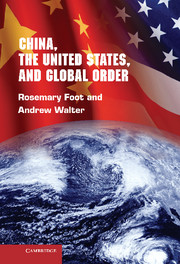2 - Use of Force
Published online by Cambridge University Press: 05 June 2012
Summary
In this first substantive chapter, we engage with a global norm that is central to global order. We take the global normative framework associated with the use of force to be built predominantly around the UN Charter – particularly Article 2(4) and Article 51 – and including the critical role it gave the UN Security Council in responding to threats to international peace and security. In our later discussion of humanitarian intervention, we include the initiatives of the UN Secretaries General and the General Assembly culminating in the World Summit Outcome (WSO) document of September 2005 and its references to the “Responsibility to Protect.” Reference to the Charter or WSO document is not meant to imply that the use of force norm has been free from contestation over interpretation, or that the thinking on the conditions under which force might be used has not evolved. However it may be interpreted, this prohibitive normative framework nevertheless has some longevity and is symmetric in the sense that it is meant to apply to every state in the global system. And while the Sino-American bilateral relationship has clearly played some role in certain of their most important decisions about when to use force – the Korean and Vietnamese wars being the most pertinent – concerns about force have become more diffuse in the bilateral relationship. The relationship is not as directly prominent as in several of our other normative areas, or as prominent in the last three decades as was the case before then.
The chapter first sets out the general normative prohibition on the use of force and the evolution in thinking on the conditions under which force might be used. It then examines and explains Chinese and US adherence to the various components of a norm that has been subject to some variance in interpretation. Finally, it assesses the extent to which their own relationship has affected their positions on the use of force. As Permanent Members of the UN Security Council, and as states in direct conflict at earlier stages in their history, their perspectives have had influence on these debates, the constitutive features of the norm, and on their own bilateral relationship.
- Type
- Chapter
- Information
- China, the United States, and Global Order , pp. 31 - 78Publisher: Cambridge University PressPrint publication year: 2010



